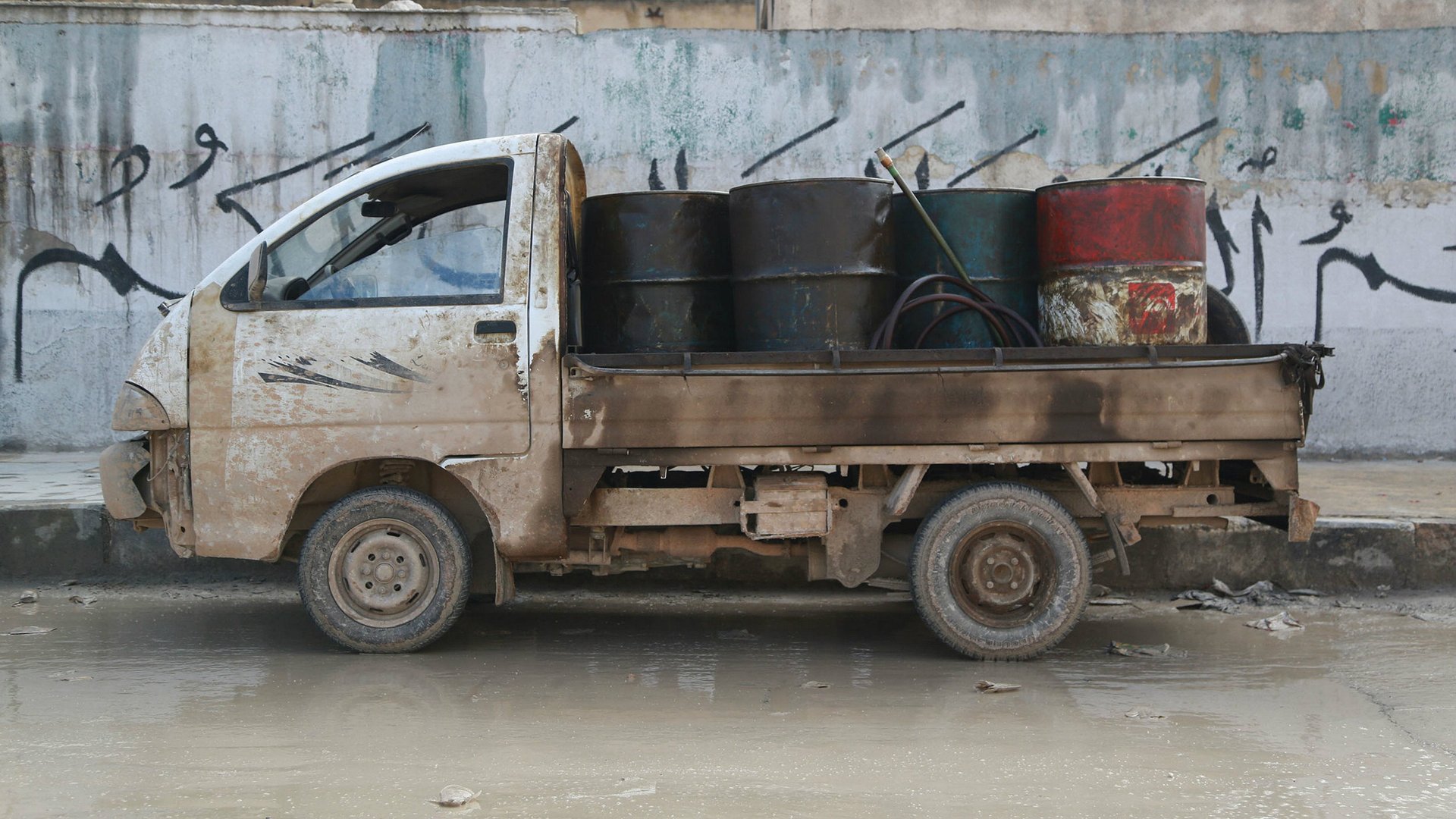The US wants to stop ISIL’s oil industry but is bombing the wrong targets
The US today (Nov. 16) redoubled its offensive on ISIL’s financial bedrock—its oil industry. But it arguably went after the wrong targets—not ISIL itself, but some 300 smuggler-driven trucks carrying fuel to market. By the time such fuel is loaded into trucks, there’s a good chance ISIL has already been paid.


The US today (Nov. 16) redoubled its offensive on ISIL’s financial bedrock—its oil industry. But it arguably went after the wrong targets—not ISIL itself, but some 300 smuggler-driven trucks carrying fuel to market. By the time such fuel is loaded into trucks, there’s a good chance ISIL has already been paid.
No one outside the organization can say with certainty how much ISIL earns from its control of oil and natural gas fields in Iraq and Syria. But in one of the best stabs at an estimate, the Financial Times reports the figure at about $1.5 million a day, or half a billion dollars a year.
The FT estimate is based on 34,000 to 40,000 barrels of oil production per day, sold at the oilfield to traders for between $20 and $45 a barrel. The newspaper tracked the main smuggling routes.
Much of the oil and fuel is sold locally, including to the Syrian regime; only a minority is exported.
The US, reluctant to destroy the oilfields themselves because they would be hard to bring back on line if ISIL can be defeated, has largely limited its attacks to the accouterments of oil production, such as refineries.
Prior to the Nov. 13 attacks on Paris, there were reports that the US had begun to destroy some infrastructure at the oilfields, such as fuel oil equipment and pumping stations. And now, the US has announced the attack on hundreds of trucks delivering fuel from ISIL fields.
But in doing so, the US destroys the livelihoods of drivers and traders, not ISIL—which, along with other smugglers, will figure out another way to get its fuel to market.
In World War II, the US helped to cripple Hitler by repeatedly bombing his oilfields in Romania. The Germans would rebuild and do workarounds after each bombing, but the attacks suppressed production to a trickle—and the strategy of attempting to obliterate the equipment necessary to produce the oil proved correct, if late in coming. When the war was over, the Romanians resuscitated the fields.
Follow Quartz’s coverage of the Paris attacks here.